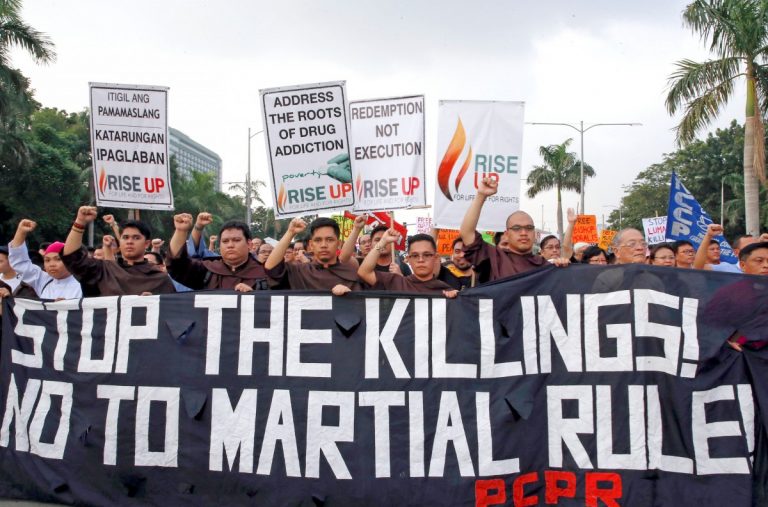
More than 100 academics in the Philippines have signed an open letter calling for an end to President Rodrigo Duterte’s bloody war on drugs and the creation of a Truth Commission.
A statement posted to the University of the Philippines College of Law’s Facebook page called upon Duterte’s government to uphold human rights principles and the Philippine Constitution by ending the “chain of killings.”
“The killers and masterminds must be brought to justice and impunity must end,” it said.
At least 7,000 people have been killed in anti-drug operations since the president took office last June, according to official statistics. Some rights groups estimate that the figure is more like 13,000.
“At least 50 of these victims are young, some aged 4, 5 and 6, apparently shot by police when they were caught in the crossfire,” said the statement.
“We call the President to desist from making statements that may be construed as encouraging the government’s armed personnel to shoot or kill, whether with the promise of pardon or immunity, the prospect of reinstatement or promotion, or outright cash awards.”
Almost 40 members of the United Nations last week urged the Philippines to investigate all killings, to combat impunity and protect human rights defenders. The majority of Filipinos, however, support the president’s drugs war.
The open letter from academics called for the creation of an “independent and credible” Truth Commission with the power to subpoena witnesses, grant testimonial immunities to encourage key witnesses to step forward, and accredit persons or private institutions to give sanctuary to victims.
Signatories were from a wide range of Filipino higher education institutions, including Ateneo de Manila University and the Polytechnic University of the Philippines.
Rather than representing opposition political interests, the academics said they were “non-partisan, non-political and independent,” merely seeking to stand up for universal rights.
Liked this? Then you’ll love…
President Duterte envisions drug-free higher education in the Philippines
Philippines: Duterte makes tuition free at state universities and colleges







